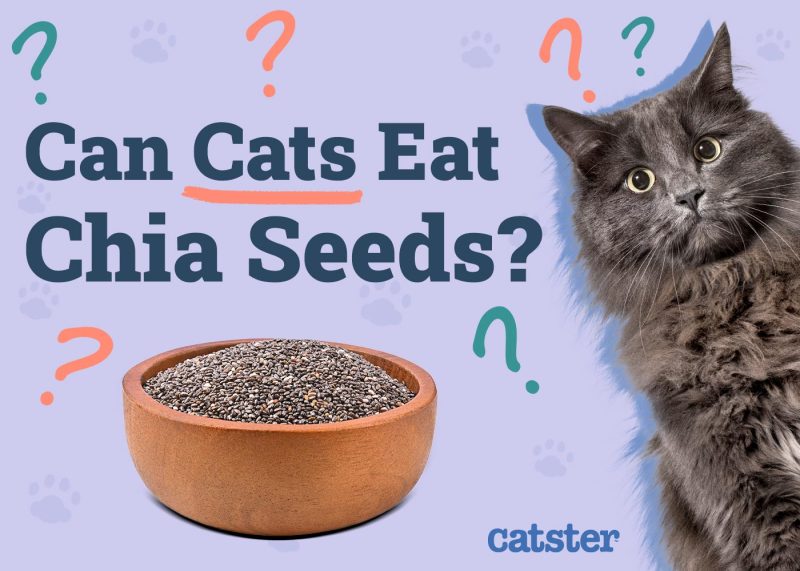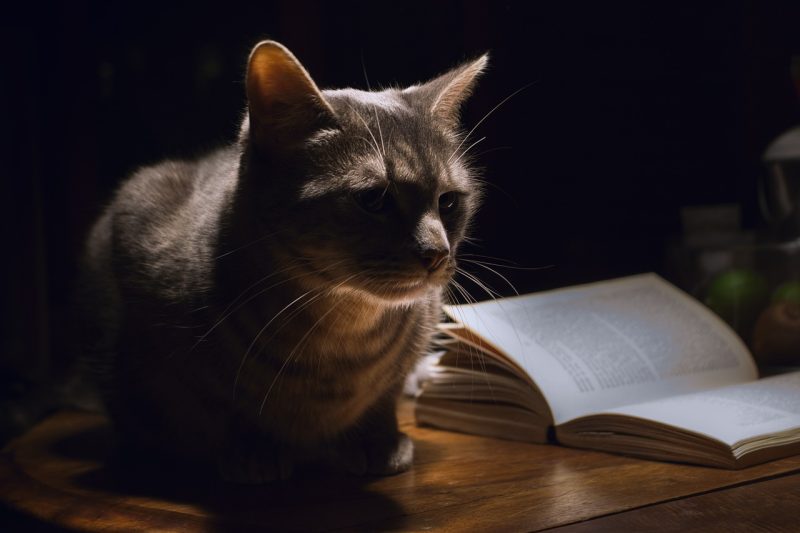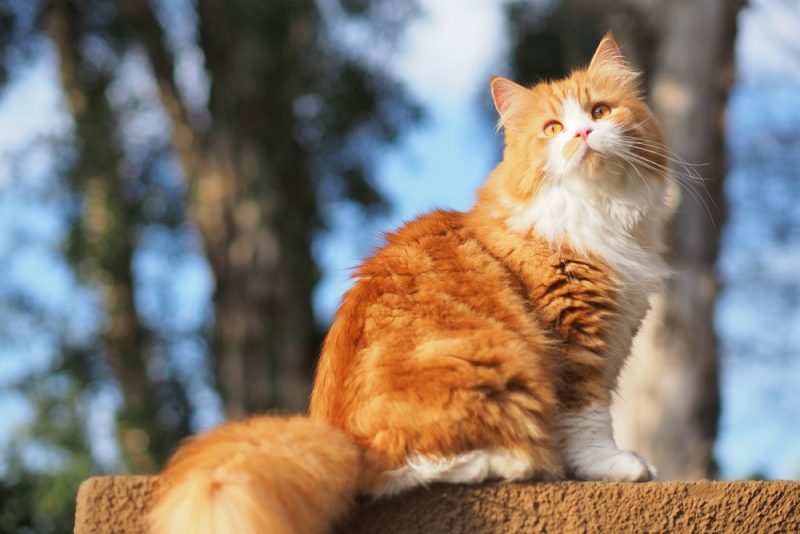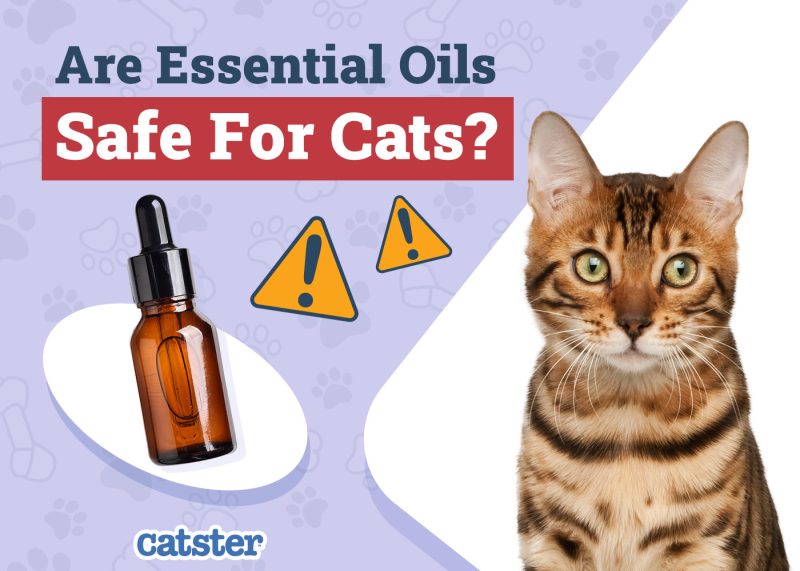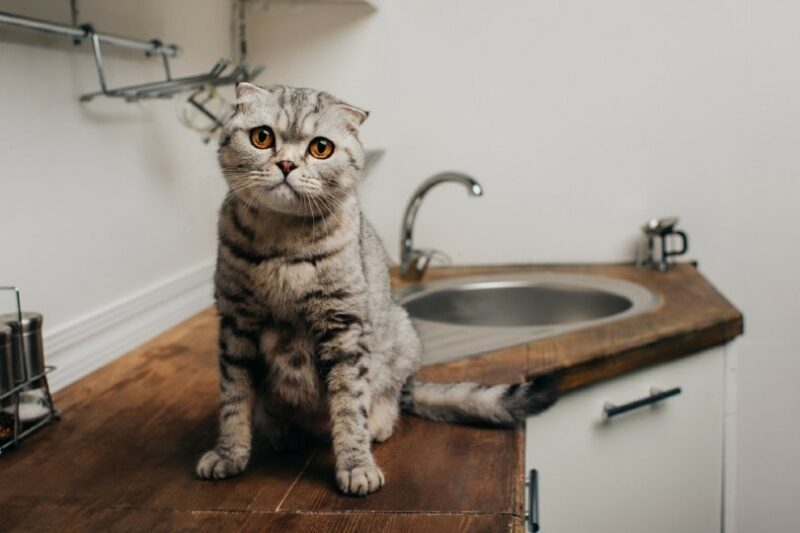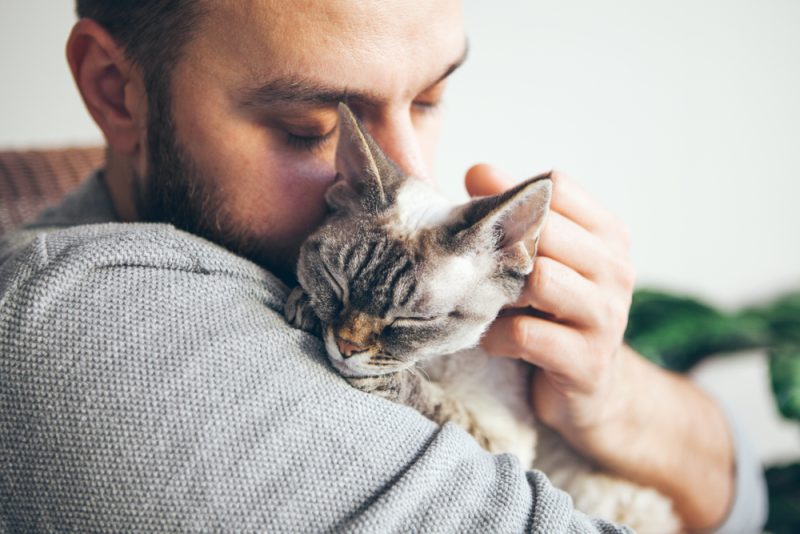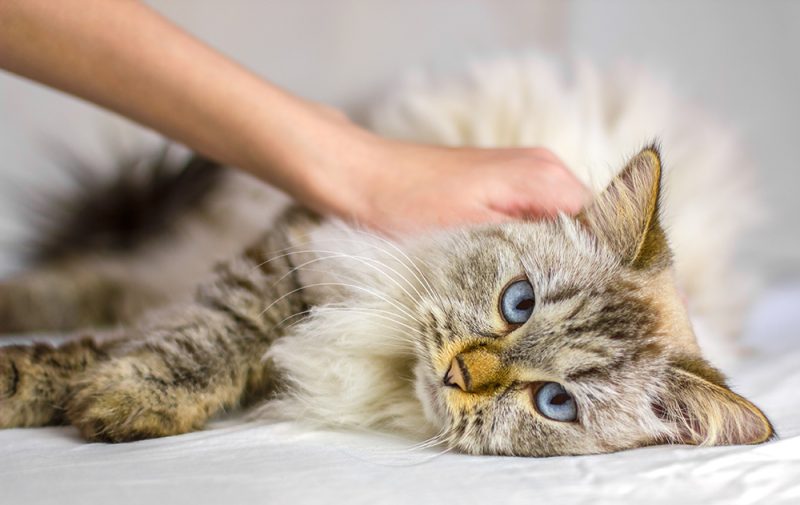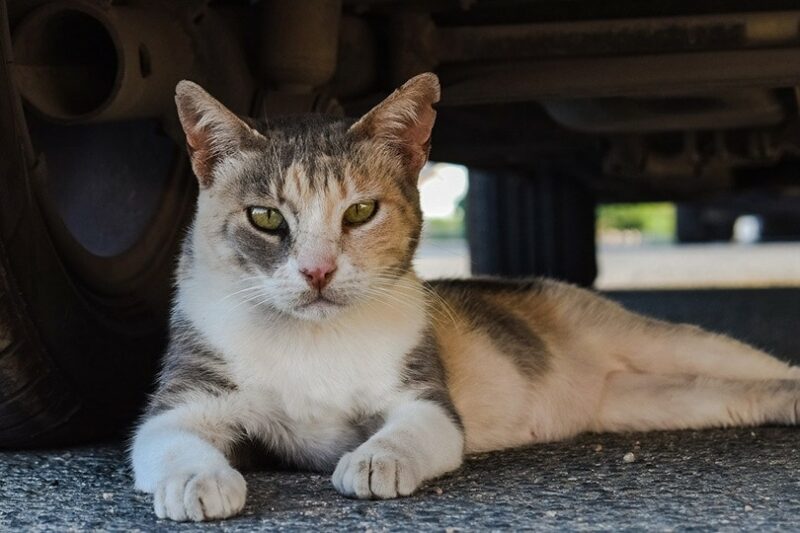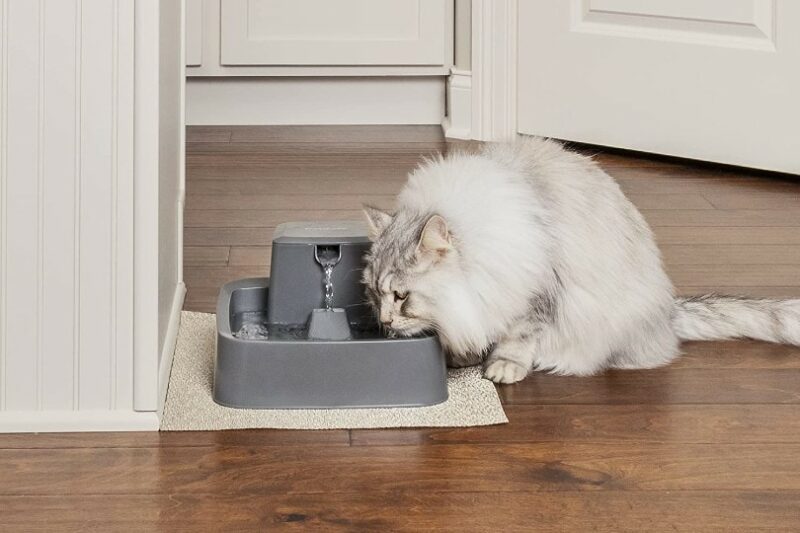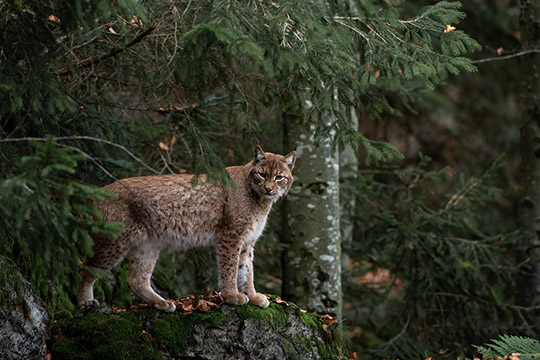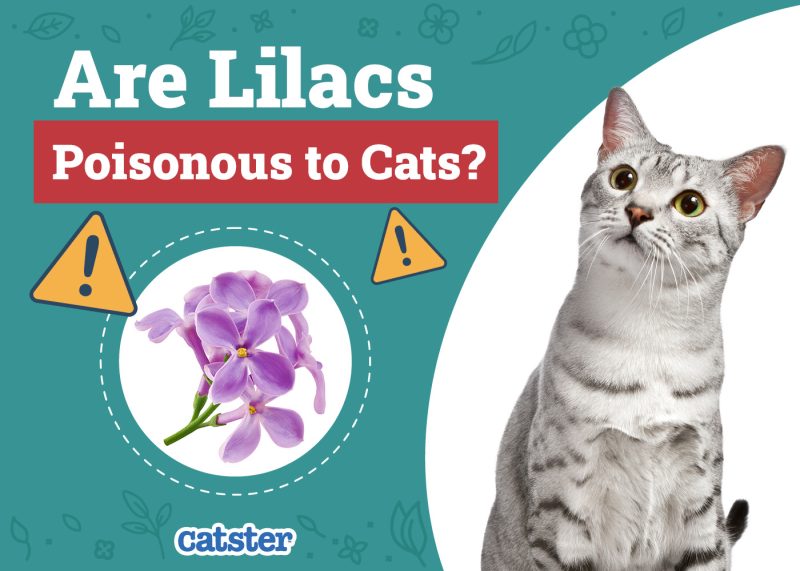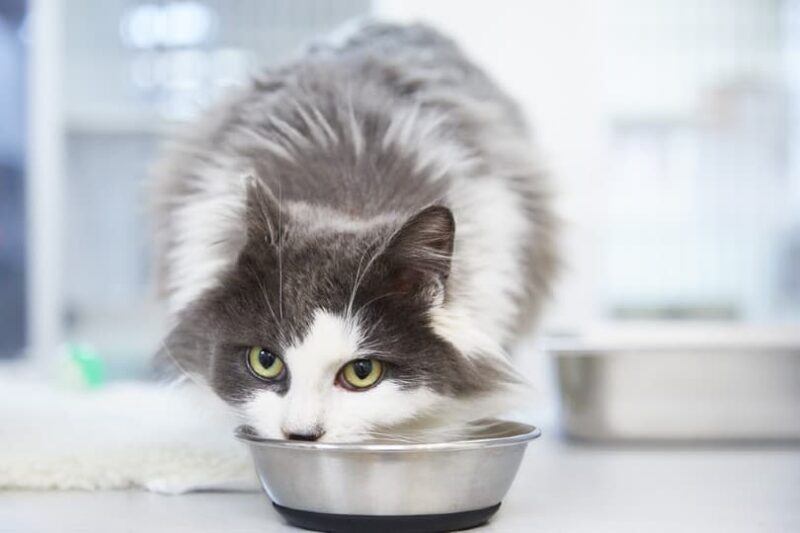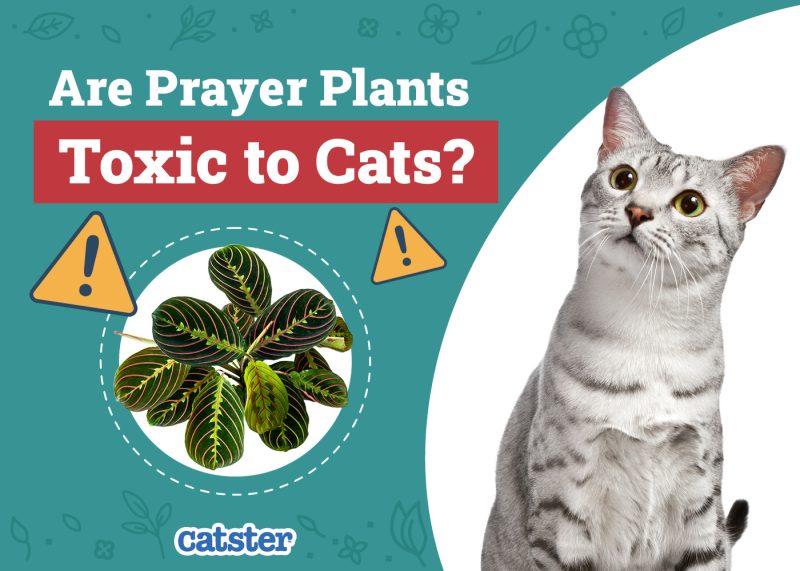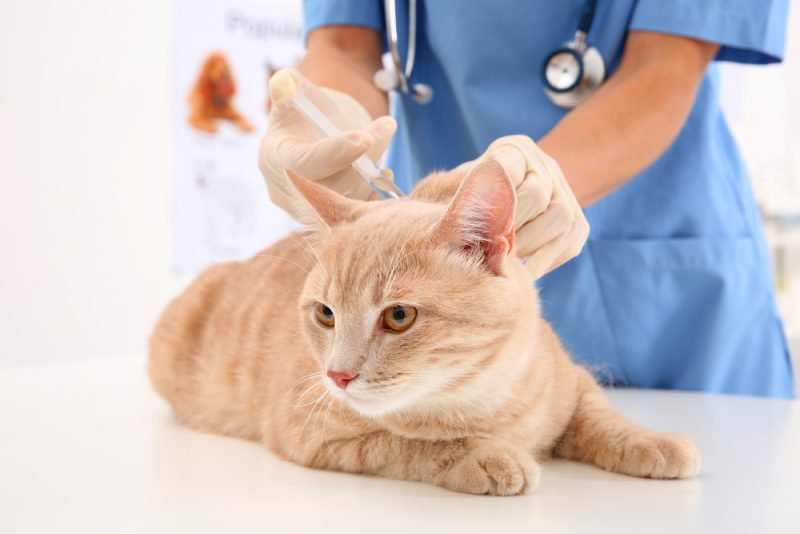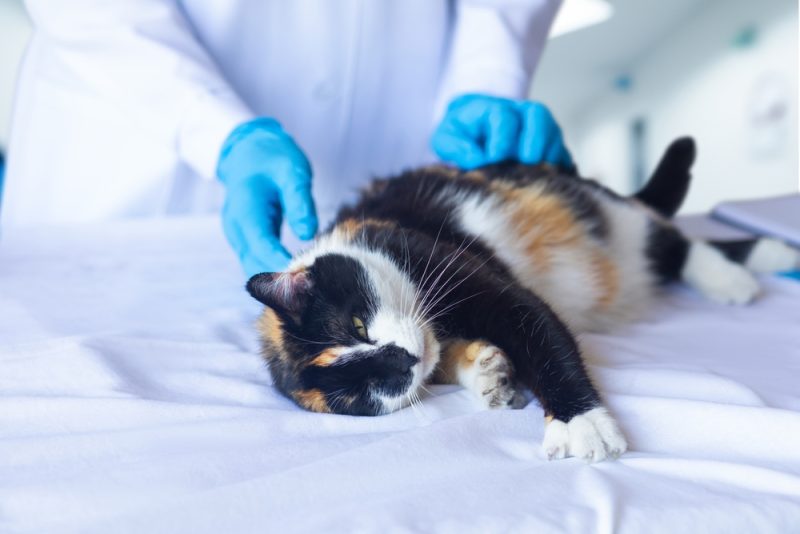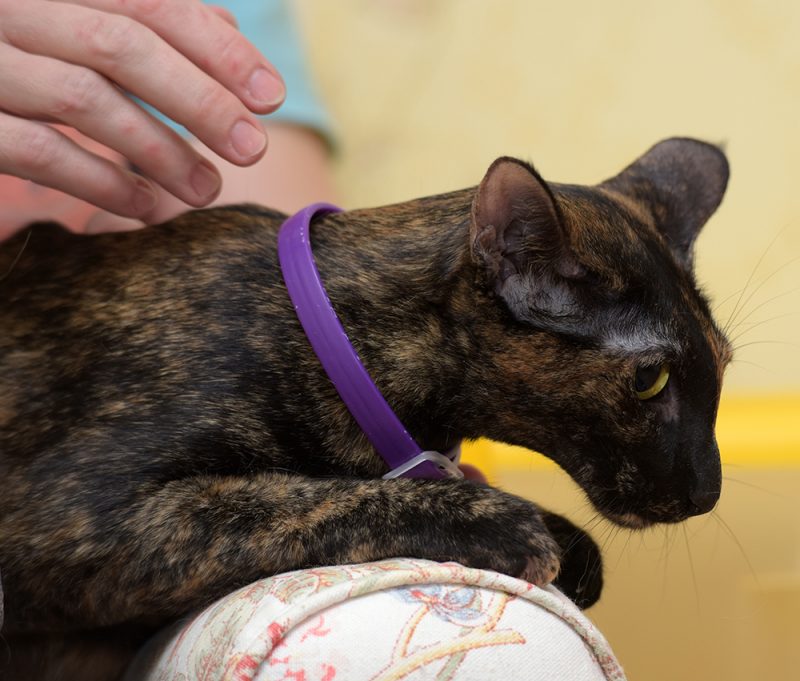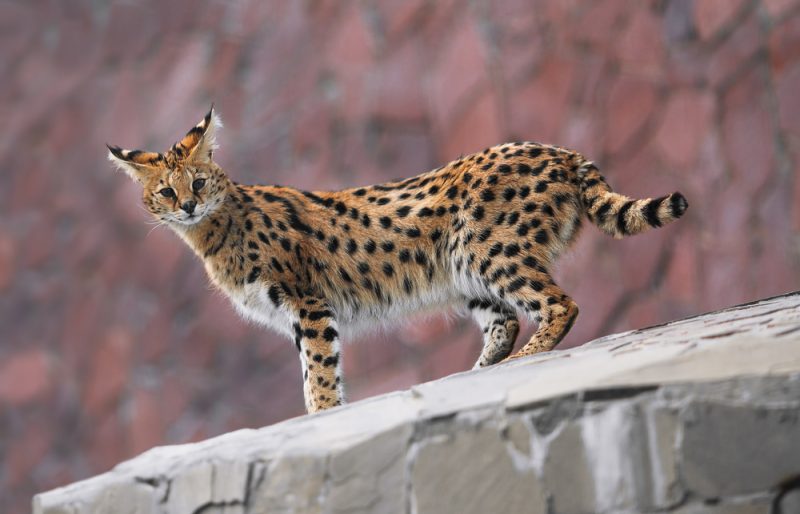In this article
Chia seeds are most associated with those tasty chia puddings that you see all over social media. Maybe you haven’t thought about giving them to your fur baby, but some cat parents wonder if their pet might benefit from a spoon or two of chia seeds in their diet. The good news is that chia seeds are generally considered safe for cats when consumed in moderation, unlike some human foods that are downright harmful to our feline friends.
However, that safety does not mean chia seeds should necessarily be part of your precious feline’s staple diet. Let’s see why.

What Are the Nutritional Benefits of Chia Seeds?
Chia seeds are a nutritional powerhouse—for humans. Chia (Salvia hispanica) is an annual summer herbaceous from southern Mexico and northern Guatemala. In recent years, the seeds of this plant have garnered attention from the scientific community due to their remarkable nutritional and functional properties.
These tiny and viscous seeds contain essential nutrients like omega-3 fatty acids, fiber, protein, calcium, phosphorus, magnesium, iron, zinc, and vitamins. When you soak them, they release a kind of mucus—known as mucilage—that can aid digestion.
While these nutrients are beneficial for us, cats have different nutritional requirements, and they also don’t strictly have a dietary fiber requirement. So, while chia seeds may offer a bit of nutritional value, along with an interesting texture and taste, they are not essential to your kitty’s well-being.
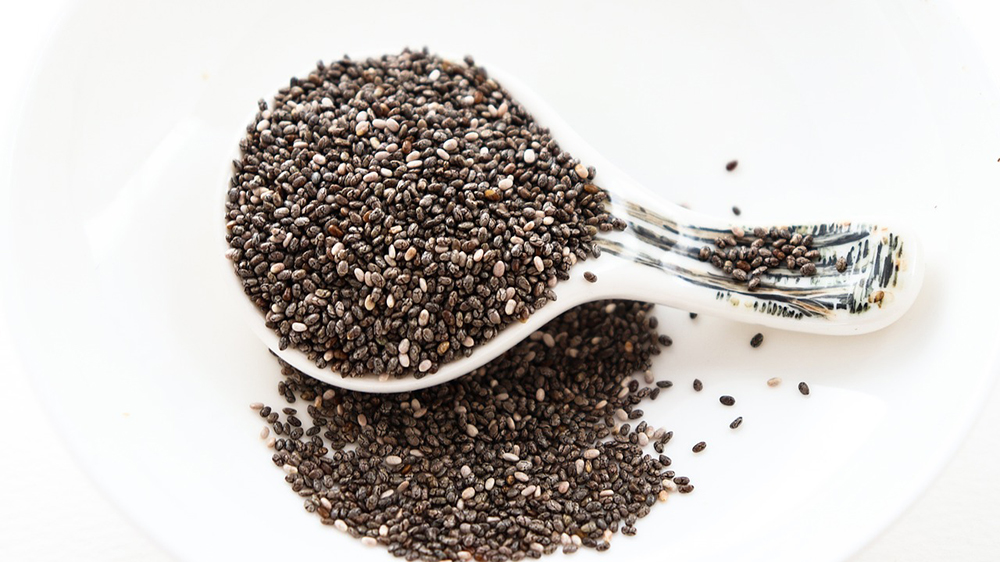
Why Chia Seeds Shouldn’t Be a Daily Staple in a Cat’s Diet
Although chia seeds are not harmful to cats, they shouldn’t be a regular part of their diet. Felines derive most of their nutritional needs from animal sources, particularly protein and specific amino acids like taurine. Chia seeds will not provide the necessary nutrients in the right proportions for optimal feline health.
Moreover, excessive intake of chia seeds can potentially lead to digestive issues in cats. The high fiber content can cause gastrointestinal upset, such as diarrhea or constipation.
Can Chia Seeds Be Given to Cats With Certain Medical Issues?
There’s currently not enough scientific evidence to back up the claims that chia seeds may help cats with certain health conditions.
That said, a recent study suggests that chia seeds may be a suitable non-pharmacological solution in the management of feline idiopathic hypercalcemia (an increase in blood calcium levels due to an unknown cause).1 However, this study was conducted on a small sample (three female domestic shorthair cats) and needs to be replicated on a more significant number of cats before drawing conclusions. Still, the results seem promising.
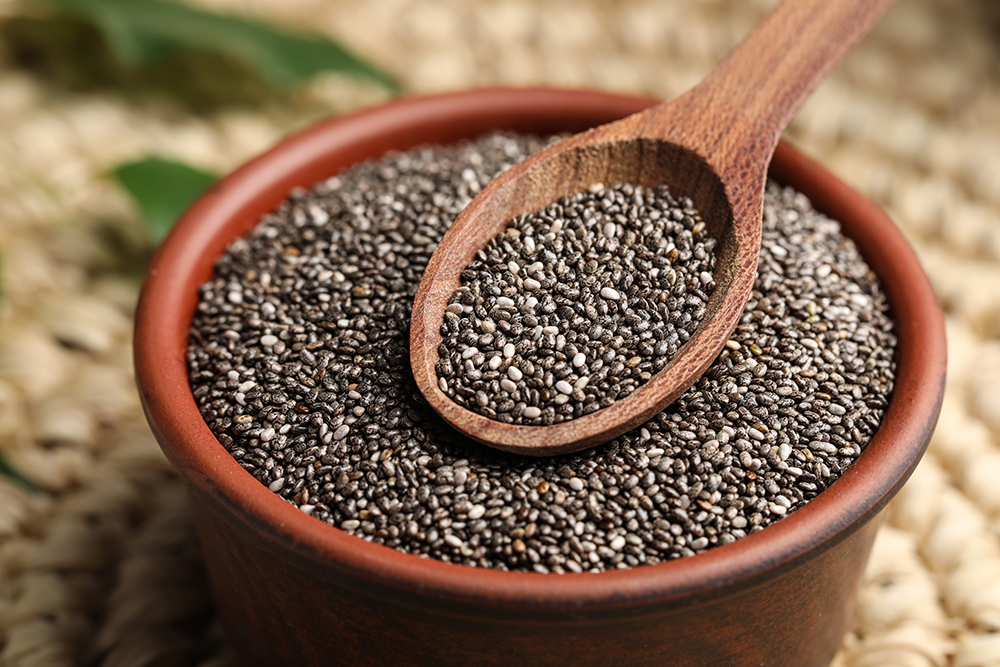
Frequently Asked Questions (FAQ)
Are There Any Benefits to Feeding Chia Seeds to My Cat Occasionally?
While chia seeds contain a few beneficial nutrients, such as omega-3 fatty acids, note that, unlike us humans, cats can not convert the omega-3 alpha-linolenic acid (ALA) into the medically important eicosapentaenoic acid (EPA) and docosahexaenoic acid (DHA).
Therefore cats need to get them directly in these forms from other sources, such as fish oil or high-quality cat food. When given occasionally and in small amounts, chia seeds may add a nutritional boost but should not replace essential elements in a cat’s diet.
How Can I Incorporate Variety Into My Cat’s Diet?
Introduce different protein sources, such as poultry, fish, and red meat. You can also explore specialized cat foods with diverse meat options. However, make any dietary changes gradually to avoid upsetting your cat’s digestive system.
Does My Cat Need Fiber in Their Diet?
Yes. Fiber promotes the growth of good gut bacteria and can be especially beneficial for cats with blood sugar issues, diabetes, or kidney disease. That said, if your cat is healthy and you are already providing them with a high-quality diet, whether in the form of fresh cat food, dry kibble or wet food, this should be enough to cover their fiber needs. If you believe that your cat might benefit from having more fiber in their diet, be sure to consult a vet first.
Need veterinary advice but can't get to the clinic? Catster recommends PangoVet, our online veterinary service. Talk to a vet online and get the answers and advice you need for your cat without having to leave your living room — all at an affordable price!

Can I Mix Chia Seeds With My Cat’s Food for Added Nutrition?
While mixing a small amount of chia seeds with your cat’s food is technically safe, it’s unnecessary and will contribute little to their overall nutrition. It’s better to focus on providing a well-balanced cat food that meets all their dietary requirements.
How Do I Know If My Cat Is Having Digestive Issues With Chia Seeds?
Watch for signs like diarrhea, constipation, vomiting, or changes in litter box habits. If you notice any of these, immediately stop feeding chia seeds to your cat, and consult a veterinarian for guidance.

Tips for a Healthy Cat’s Diet
- Incorporate variety. Just like humans, cats appreciate variety in their meals. Introduce different protein sources to keep their diet exciting and provide a well-rounded nutritional profile.
- Don’t overdo it with the treats. While treats are great for bonding with your cat, be mindful of the quantity. Excessive treats can lead to weight issues and nutritional imbalances. Opt for healthy, cat-friendly treats in moderation.
- Always provide fresh water. Ensure that your cat has access to fresh, clean water at all times. Hydration is essential for their overall health, and a well-hydrated cat is less likely to deal with urinary issues.

Bottom Line
Although chia seeds are not toxic to cats, they should not be a regular part of their diet. Our feline companions have unique nutritional needs, and their well-being is best served by a diet that prioritizes animal protein. While it’s true that cats need fiber for good intestinal health, this need is generally met by a quality commercial diet. Some cats with specific medical conditions may benefit from fiber supplements in their daily intake, but this should be established by their veterinarian.
The bottom line here is that if you catch your beloved kitty lapping up your chia seed pudding, there’s no need to panic. However, don’t make a habit of it.
